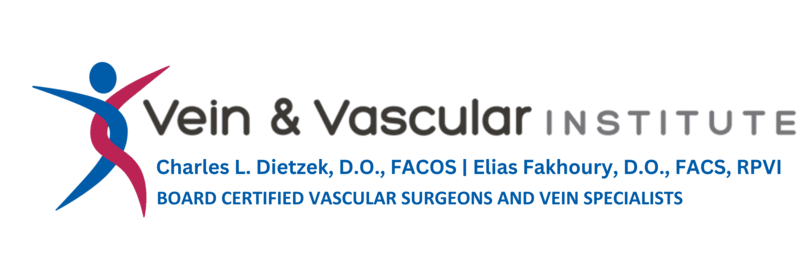Arteries, blood vessels, and veins are all part of the circulatory system. Your circulatory system assists with the delivery of blood throughout your body. The nutrients and oxygen contained in the blood must be distributed amongst every cell and organ. For this reason, when vein problems develop, achieving optimal health is impossible.
Table of Contents
ToggleThe Importance of Healthy Veins
Keeping your veins healthy is essential because, without proper blood circulation, the body is unable to function. Therefore, taking steps to avoid and/or address problems with your veins can help you achieve optimal health.
Factors That Influence Blood Circulation
Peripheral artery disease (PAD) occurs when the blood vessels narrow. These narrow blood vessels make it difficult for the blood to move throughout the body, thus, reducing the overall flow of blood, and negatively affecting the organs and cells. If you have PAD, you may experience numbness and/or tingling. In addition, as time passes, nerve and tissue damage may result.
One of the main contributors to poor circulation is living an unhealthy lifestyle, which may include excessive alcohol consumption, smoking, and a sedentary lifestyle. Certain conditions can also negatively affect circulation. These conditions include anemia (low iron), thyroid disease, nerve disorders, and diabetes.
How to Recognize Poor Blood Circulation
While preventing vein problems is ideal, in the event that you already have vein issues, identifying the signs of poor circulation is essential.
Poor blood circulation can cause:
- Leg aches and/or cramps
- Decreased energy levels
- Fatigue
- Cold sensations, tingling, or numbness in the feet and/or hands
- Recurrent pain in the calf
- Leg swelling and/or ulcers
- Visible skin discoloration on the leg
- Loss of appetite
- Slow-healing scratches, sores, and/or cuts
- High blood pressure
- Erectile dysfunction
If you experience any of the symptoms listed above, vein treatment options are available at the Vein and Vascular Institute of New Jersey. Contact us today at 856-309-8346 to schedule an appointment with Dr. Charles L. Dietzek.
Poor Blood Circulation Can Lead to A Variety of Problems
When the blood is unable to move freely throughout the body, health problems are likely.
Problems related to poor circulation include:
- Varicose veins
- Dark circles under the eye
- Loss of vision
- Deep vein thrombosis
- Memory loss
- Cardiovascular disease
- Dizzy spells
- Blood clots
- Headaches
- Restricted blood flow to the brain
These are just a few of the many conditions that poor blood circulation due to vein problems can cause.
Varicose Veins
Varicose veins are large, bulging vessels that look like cords beneath the skin. They can be purple, red, blue, or pink. You may have varicose veins if you are experiencing pain, itching, and/or aching in your leg(s). This condition is hereditary, but it can also be caused by pregnancy, gender, and/or spending a lot of time on your feet.
Varicose veins occur when the walls of the veins become weak and stiff. The flaps responsible for keeping the blood within the veins as they flow toward the heart also become weak: This causes the blood to backflow and pool in the legs.
Spider Veins
Spider veins and varicose veins are not one in the same. While varicose veins are large, and cord like spider veins are very small and rest closer to the skin’s surface. They may be blue, red, or purple and usually appear on the face or the legs.
How to Keep Your Veins Healthy
One of the best ways to improve your vein health is to eat a proper diet that includes:
- Fiber – assists with digestion and regularity, preventing undue pressure on the abdomen, which can block blood flow to the legs. Foods high in fiber include vegetables, fruit, brown rice, grains, oatmeal, and barley.
- Water – staying hydrated reduces the symptoms associated with varicose veins because it flushes out your system. You should be drinking eight 8-ounce glasses of water every day.
- Antioxidants – significantly improve the functioning of the vascular system. Foods high in antioxidants include berries, fruits, and vegetables high in vitamins K, C, and E.
- Reduce sodium intake – sodium increases fluid retention, which damages the veins. Sodium is used in a variety of foods, including canned soups, salad dressings, frozen meals, deli meats, etc. Checking food labels is the best way to ensure the foods you consume are low in sodium.
If you are concerned about your vein health, contact the Vein and Vascular Institute at 856-309-9777 to make an appointment with Dr. Charles L. Dietzek. For your convenience, we have four New Jersey locations: Sewell, Lumberton, Voorhees, and Vineland.
